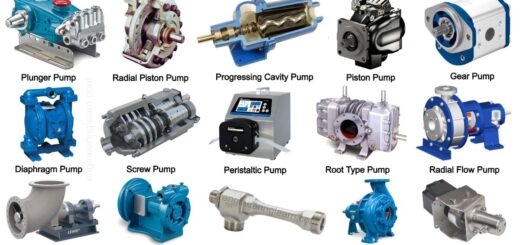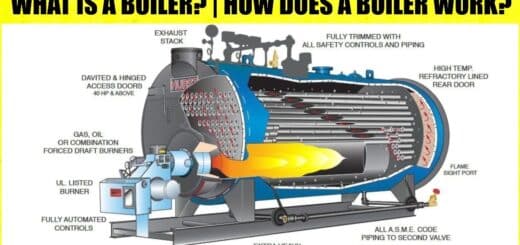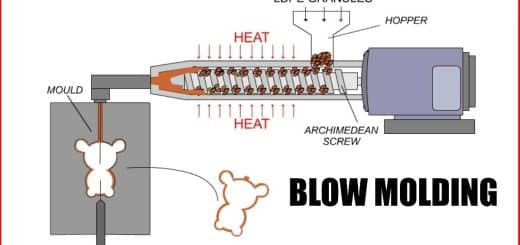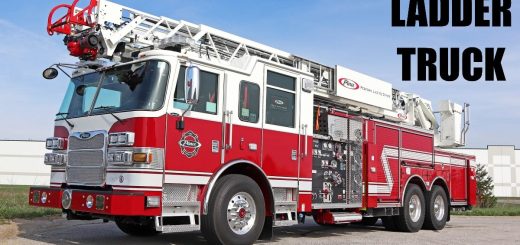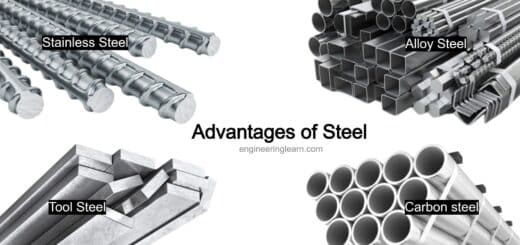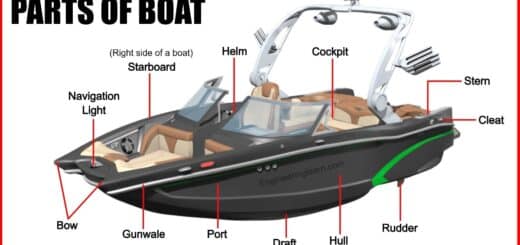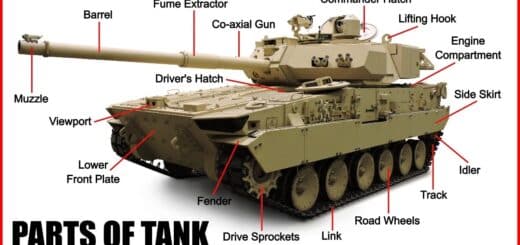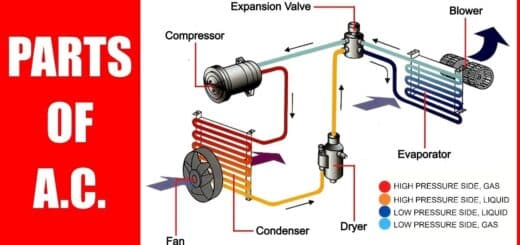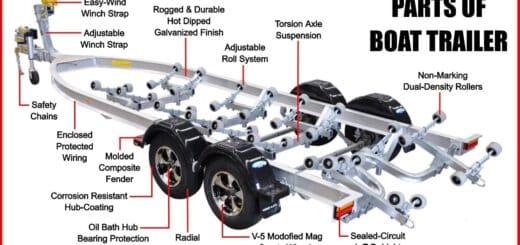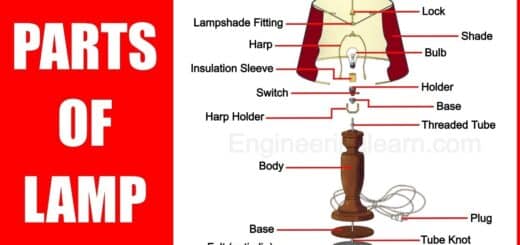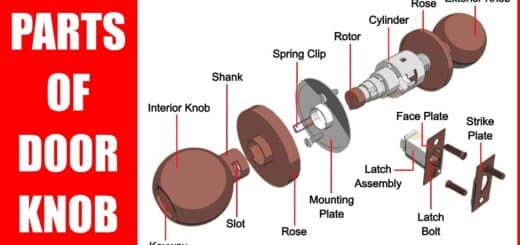9 Types of Air Conditioning System (AC) – Advantages and Disadvantages [Complete Guide]
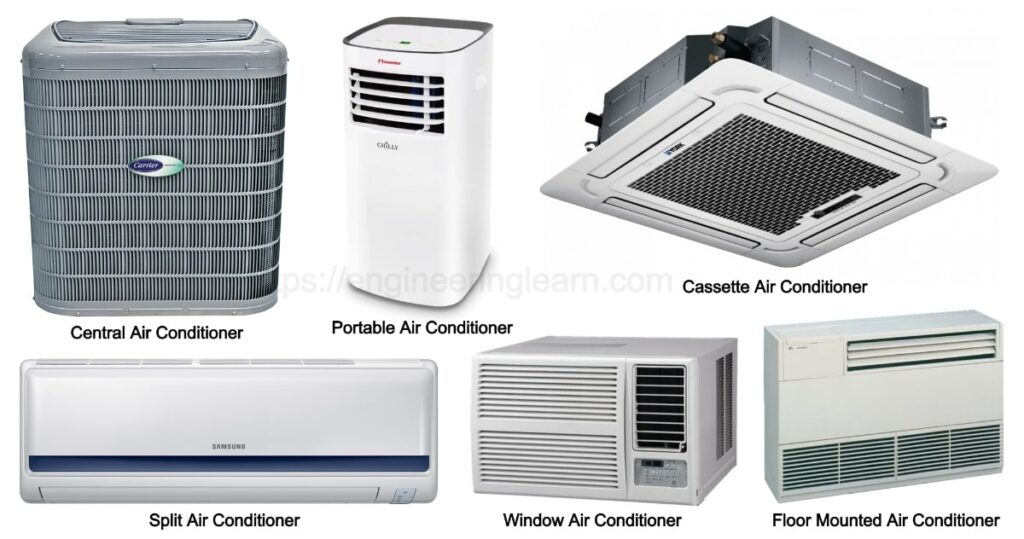
Types of Air Conditioning System: Advantages and Disadvantages :- Air conditioners are one of the most common electrical appliance which is highly used in homes, offices, shopping stores etc. Almost every house has an air conditioner installed either of one type or another. The unit of an air conditioner is an integral part of any house which takes up a major proportion of the appliances which one must have.
At the other end making the correct choice is mandatory as it comes to the cooling, comfort & energy consumption which are directly dependent on each other. There are various types of air conditioners about which one should know. So let’s dive in to learn more about the types of air conditioning system.
There are some factors which need to be considered while selecting the best type of AC which are as follows:
- Budget
- Energy Consumption
- Space Requirements & Maintenance
- Cooling Power
Types of Air Conditioning System
Majorly known there are nine main types of air conditioning system in the market. Each of its type is designed for a certain space which is responsible for fulfilling a certain purpose.
- Central Air Conditioning System
- Ductless Mini-Split Air Conditioner
- Window Air Conditioner
- Portable Air Conditioner
- Floor Mounted Air Conditioner
- Smart Air Conditioner
- Geothermal Air Conditioning System
- Hybrid / Dual Fuel Air Conditioner
- Cassette Air Conditioner
1. Central Air Conditioning System
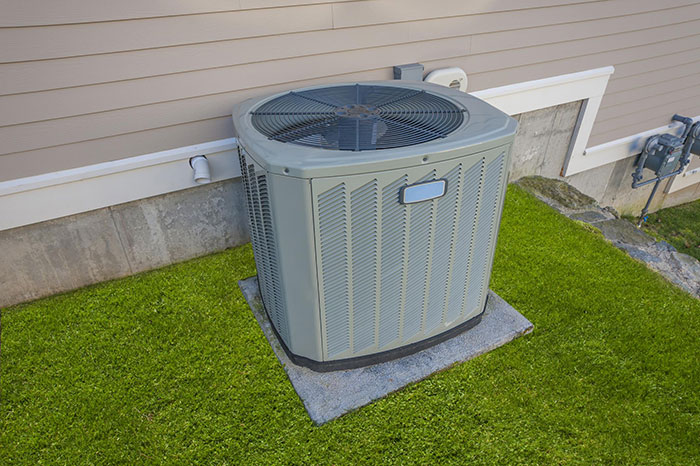
Central air conditioner are preferred in case you have a large space or you wish to cool multiple rooms at a time then these type of air conditioning systems can surely be best suited for you. These AC units work by using a split system which regulates air through the ducts that are installed in your home. This system is also termed as ducted system.
The split aspect provides the system with a combination of two main units, first is the outdoor unit packs in the condenser and compressor while the other one is the indoor unit which comprises of the evaporator coils & air handler. The central air conditioning system also uses refrigerant in removing heat from the indoor air. This heat is thrown outside & the cool air is pushed in through the ducts of the units.
The latest HVAC technology along with the programmable thermostats can be coupled with a central air conditioners for a better experience.
Advantages of Central AC
- It cools the whole are which is connected to the ducts at once and thus creates a cool & regulated environment around in comparatively less time.
- As the cool air is circulated the effect of humidity decreases which makes the overall environment more comfortable.
Disadvantages of Central AC
- Consumes plenty of energy which results in higher bills.
- The efficiency can be effected in case any technical issue arises in the ducts of the AC system.
- The outdoor units are found to be unattractive which can be hidden at the backyard.
2. Ductless Mini-Split Air Conditioner
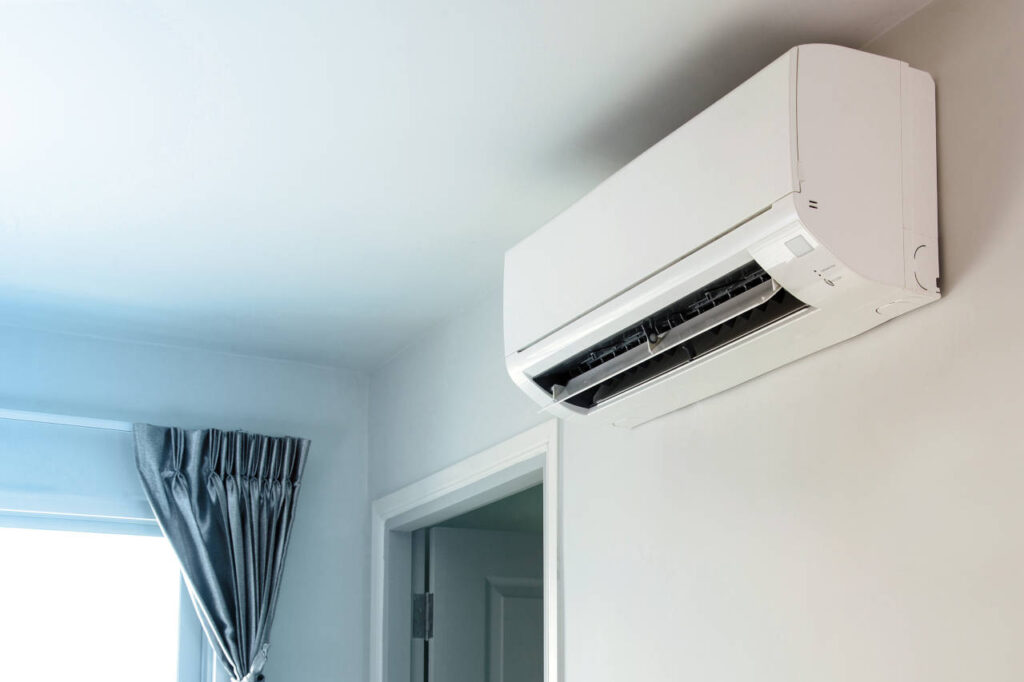
If you prefer staying out from the ducting and still want a better cooling efficiency, then opting for the ductless mini-split air conditioners could be the best choice. Ductless systems are the perfect choice for especially the contemporary homes or buildings. This type of air conditioner is found comprising of a compressor & a condenser which are accompanied with one or more indoor units.
The indoor units of such systems are mostly mounted on a wall and are equipped with air blowers. The connection between the indoor & outdoor units are is done through tubing wherein the refrigerant circulates through them in variation depending on the type of usage. As the indoor units are quite small and compact, the space where it usually gets the unit installed that can either be used for heating or cooling purposes.
These types of air conditioners are considered highly efficient in terms of energy consumption as compared to some other available which can also be heavy in monetary terms if you plan on installing one in each space in order to cover the entire house. The ductless mini-splits units come with a remote control which is coupled with a smart AC controller which means that you can operate them using your phone as well.
Advantages of Ductless Mini-Split AC
- Can be installed everywhere without the ductwork.
- The temperature can be monitored individually.
Disadvantages of Ductless Mini-Split AC
- Only one ductless mini-split unit is not sufficient for cooling large spaces.
- The Indoor unit of a ductless mini-split are mostly wall-mounted, therefore, it can be viewed from the naked eye.
3. Window Air Conditioner
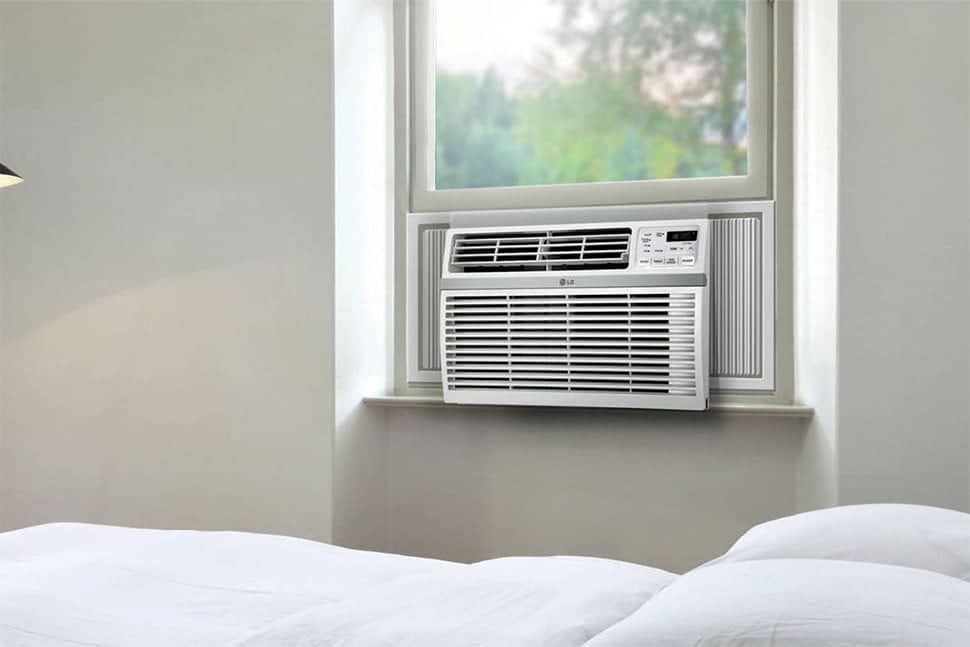
Window air conditioners are found available in various sizes which can be selected depending upon the requirement and the size of the room. Larger window air conditioners can be preferred which can even cool an adjoined smaller space. The reason why window air conditioners are preferred is due to its extraordinary cooling capacity & is thus regarded as the most common type of air conditioner.
A window air conditioner comprises of a single unit with all of its components enclosed inside it itself. It removes the heat from its outdoor side and blows cool air into the room from its fan installed at the front in the indoor side. The name clearly recommends that these are to be installed in a window or also by making a hole in the wall. These types of air conditioners include a filter that slides out which can be cleaned on regular basis for increasing the efficiency of the AC. These types of air conditioners are found having remote controls on the unit.
Advantages of Window AC
- Cost effective and cheaper to operate
- Easy to install
- Easy to maintain
- Does not consume floor space
Disadvantages of Window AC
- Are not noise free during operation & are clearly visible from outside.
- Obstruct the view from window and need to be located near a suitable electrical outlet.
- The windows need to be of a regular shape in order to accommodate windows air conditioners. Irregularly shaped windows will not be able to accommodate these AC units.
4. Portable Air Conditioner
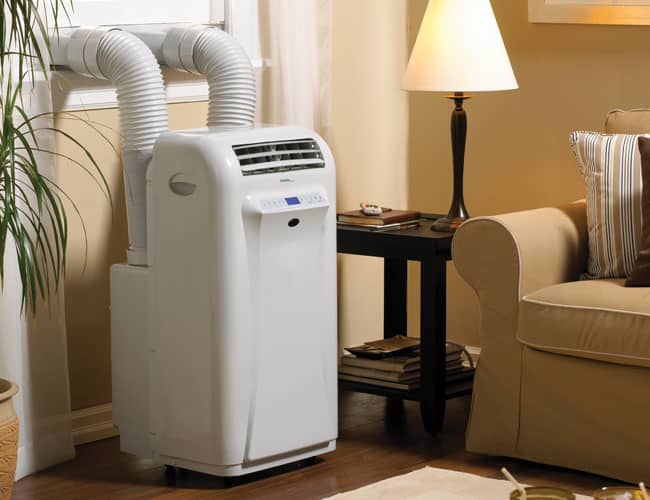
Portable air conditioners can be considered similar to the other ac units like window air conditioners as these are also single unit system with all of its components enclosed inside it. The difference is that it is a free-standing unit and thus can be movable according to the convenience. Nothing other than a power outlet is needed in order to power it up & access it to a window where the exhaust air can be exhausted from.
These types of portable air conditioners can be used in the temporary space for cooling or at the places wherever it is not possible to install a window or a split air conditioner. There are various versions that are found being used in the kennels or bathrooms. These portable ACs can be single- hose which takes in the air from inside the room and expels it outdoors. As the portable unit sits inside only, the evaporator fan runs consistently in order to evaporate the condensed moisture which is collected inside the unit.
Advantages of Portable AC
- Easy to set up
- Movable around the space
- These AC’s do not need any permanent installation
- One of the most effective option for spot cooling
- Can be safely kept when not needed
Disadvantages of Portable AC
- The units are quite noisy during operation
- Not capable for cooling larger rooms
- The portable units which come with a hose have to necessarily be placed near a window resulting which the hose obstructs the lower part of the window
5. Floor Mounted Air Conditioner
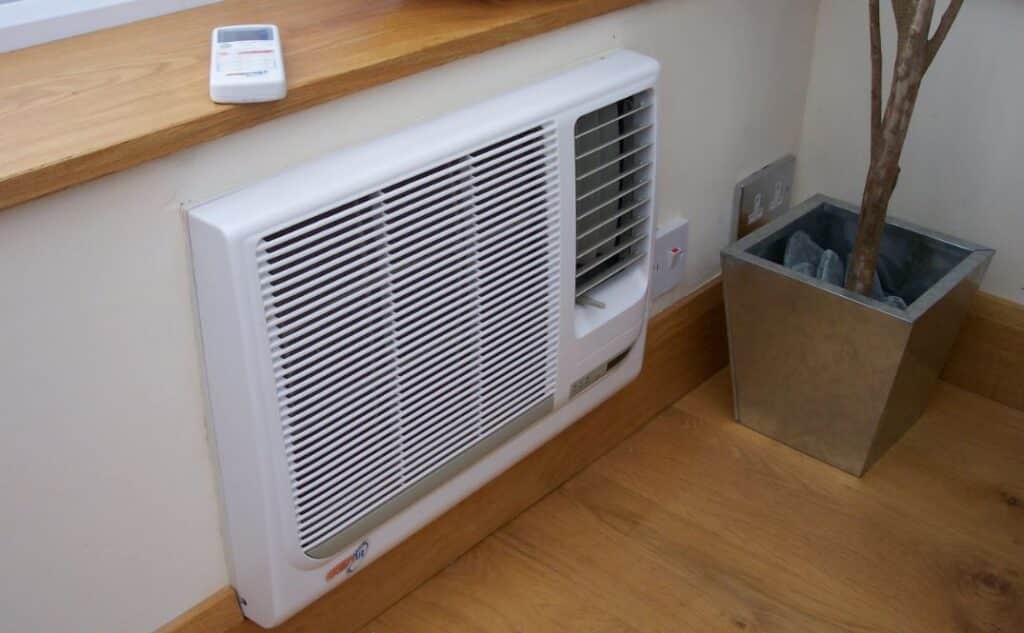
Floor mounted air conditioners are the ones which are designed for the convenience if you are looking to have something similar to a mini-split, but it lacks the required space for a wall mounted unit. The indoor unit of these types of AC is kept on the floor resulting which the outer unit can be installed without preparing any ductwork.
This type of AC units can be suitable for spaces which are found having tilted walls like building constructed using fragile materials like glass. The height at which the unit can be installed is up to 6 inches higher than the floor by making a small hole in the wall from where it is connected to the outdoor unit. The benefit of placing such AC units is that it allows you in easily checking the air filters, which means that it gives an easy access to the air filters which is found ideal for individuals with respiratory issues or people who are keen on keeping their indoor air quality as clean as possible.
Floor mounted systems are used to cool or heat the room quickly as compared to any other mounting system as the fan blows the air directly at your level. These are the units which are specifically mounted high on the wall so that it does not face difficulties in cooling the room uniformly and efficiently.
Advantages of Floor Mounted AC
- Appropriate for elderly people
- Easy installation
- Perfect choice for small areas as it does not take much space
Disadvantages of Floor Mounted AC
- The flow of air can decrease due to the obstacles like furniture present in the room
- Not at all suitable for large rooms due to the uneven and localized distribution of airflow
6. Smart Air Conditioner
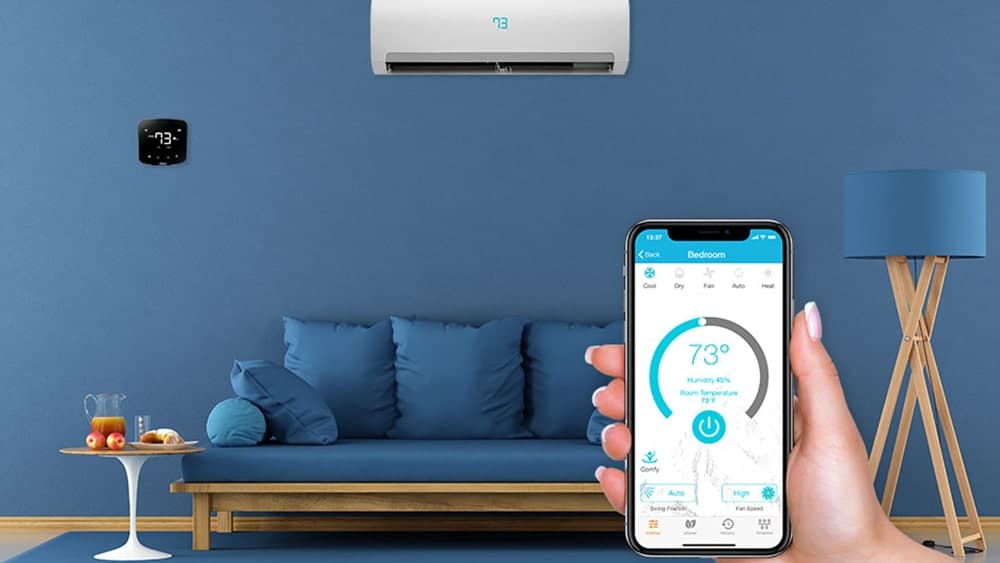
Smart air conditioners refers to as that a type of AC similar to that of mini-split, window or portable air conditioner which are IOT enabled. These units are connected to the Wi-Fi and are found with a pre-installed native app which provides the global control through any smartphone.
These types of units are found having numerous functionalities which can be operated from the smartphones. Some amongst these include weekly scheduling, comfy mode, temperature controlling etc. These are some of the features using which you can achieve great comfort along with savings energy and saving on higher bills.
Advantages of Smart AC
- Provides additional comfort & convenience
- Numerous features
- Saves energy
Disadvantages of Smart AC
- More expensive than other units.
- Mandatory Wi-Fi connectivity is necessary to utilize all the features
7. Geothermal Air Conditioning System
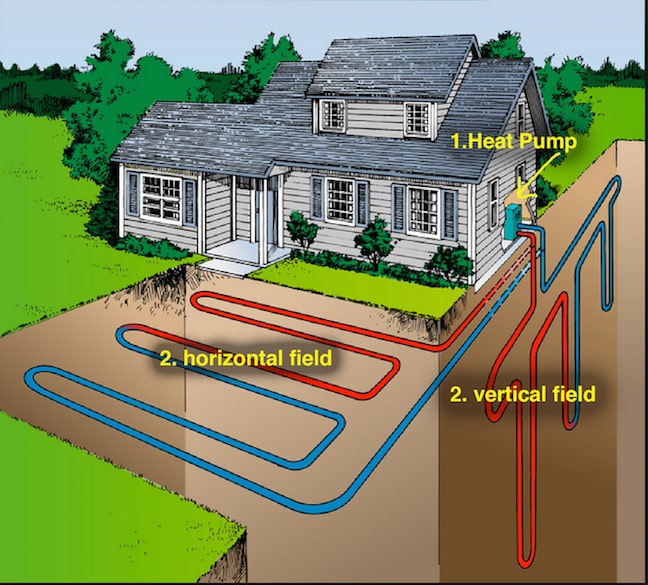
Geothermal AC units are those which offer both heating & cooling facility and is considered as a new method. It works by the utilization of the insulating properties of the earth. As the temperatures beneath 4 to 6 feet of ground remains constant for the whole year regardless to the weather conditions, the geothermal technology takes its advantage in order to heat & cool the required space with higher efficiency.
This system is found having pipes which consists of a loop that circulates the amount of water within the room, heat pump & the ground. It requires an intensive work in order to set up underground.
Advantages of Geothermal AC
- Highly efficient
- Saves energy
- Longer lifespan in both heating & cooling facility
Disadvantages of Geothermal AC
- Installation can sometimes be tedious as loops are installed in the ground
- Initial cost is very high
8. Hybrid or Dual Fuel Air Conditioner
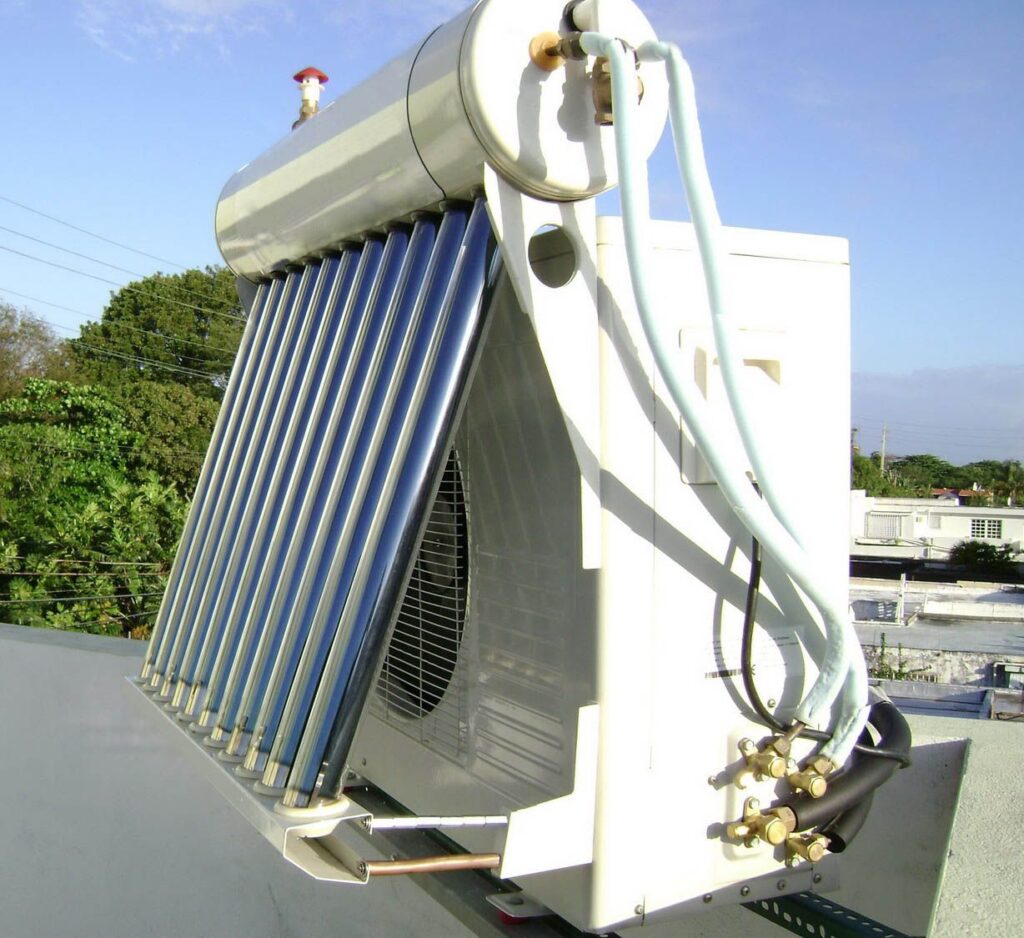
A hybrid AC unit is the one which combines a gas furnace along with the electric air-source heat pump in order to deliver a cost-effective as well as an efficient performance in terms of heating & cooling. Depending upon the outer temperature, the system is found switching between burning fossil fuels and the usage of electricity automatically. The temperature at which the system switches from heat pump to furnace can be either programmed or can be switched manually.
Considering the summer season, the heat pump works as it is functioned to by throwing out the hot air from inside. In the winters the same process gets reversed wherein the heat is distributed throughout the space where the unit is placed. Once the temperature is too cold for a heat pump to function efficiently, the furnace gets in.
Advantages of Hybrid AC
- Highest indoor comfort
- Decreases the cost of bills
- Decreases the carbon footprint
Disadvantages of Hybrid AC
- High initial setting up cost
- Breakeven point may occur in case of long running
9. Cassette Air Conditioner
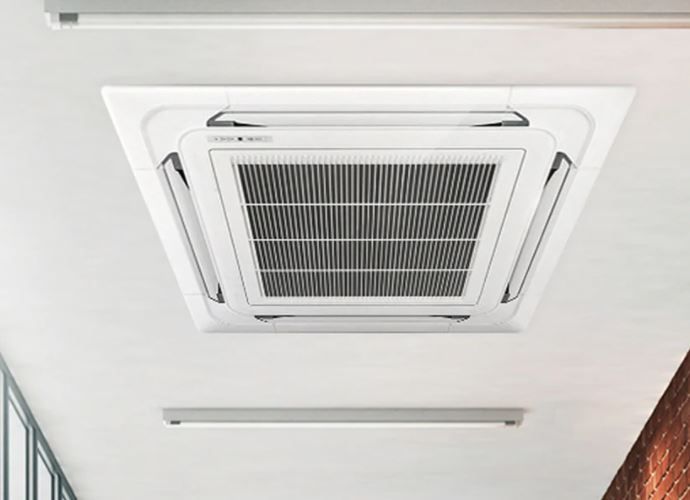
Image Source :- greenplumbingnj, carolinacomfortsc, cielowigle, renewableenergyworld, toroccos
